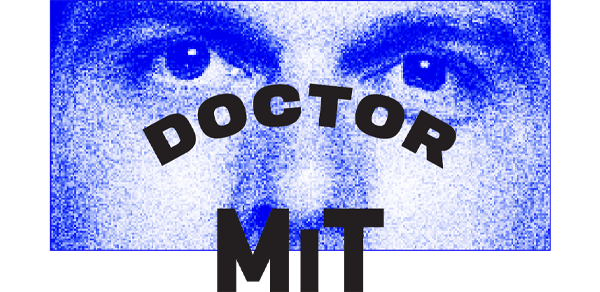IMPORTANT: NO, we are not affiliated with any pharmacy and NO, we are NOT able to guarantee the accuracy of the information supplied on this website by the community. NO, we have NO intention to generate profit.
Access to this platform is and will remain ALWAYS FREE.
All donations are publicly available on BuyMeAcoffee and are stopped each year upon reaching the annual maintenance costs (£200 /year).
Did you find the medicine somewhere else?

Adina-Gabriela Huma
Pharmacist, Dona

Adrian Marian Păunescu
Patient advocate, ADHD Adults Romania

Ana Mitrofan and Mihai Stelian
Musicians, Creative Kidz

Andreea Dimitriu
Psychology student

Andrei Hodorog
Researcher and programmer

Alex
Musician, Săndel Music

Catalin
Vlogger, Balkan Bald / ADDtitude Travel

Diana Cătălina Bancu
Specialist psychiatrist
Become a medicine hero yourself!
Help Ana stop wandering all over town! Suggest new locations and join us in our fight for greater pharmaceutical availability!
How can you find a medicine more easily?
Pharmacists are subject to the order of the Ministry of Health no. 269 / 2017 on the obligation to ensure adequate and continuous stocks of medicinal products. Therefore, they are obliged by law to work with you and act in your best interests to get the medicine prescribed by your doctor.
1. CHECK COUNTY STOCKS
Go to https://ser.ms.ro/access/user to see the stock situation at county level. If you can't find the medicine in your county, report it missing on https://medicamentelipsa.ms.ro and to the email address: [email protected]
2. DELEGATE THE SEARCH TO THE PHARMACIST
Given the presence of centralised computerised stock monitoring systems, it wouldn't be productive to manually search each individual pharmacy, would it? Therefore, you can call your nearest pharmacy that is part of a major pharmaceutical chain and ask the pharmacist to search the entire chain's stock for the medicine you want.
3. REPEAT THE PROCESS
Repeat the process for each pharmaceutical chain until you exhaust the major ones. Remember: Your time spent looking for the medicine is not paid! The pharmacist's, however, is!
4. IF YOU STILL CAN'T FIND YOUR MEDICINE
If your medicine is in the county stocks but you still can't find it in the pharmacies, ask your pharmacist to make a special request to the warehouse. If a negative reply is received, the pharmacist is obliged by law to report the medicine missing using the procedures specified in point 1. At the same time, the pharmacist is not allowed to hold your prescription for more than 48 hours.
5. CHECK STOCKS IN OTHER COUNTIES
If you really need the medicine and there are no prospects of getting it in your county of residence, there are no legal constraints on the location where you get your medicines from! Therefore, repeat step 1 for other counties! You can possibly start with neighbouring counties.
6. REPEAT STEPS 2-4 FOR PHARMACIES IN OTHER COUNTIES
Find a pharmacy in another county where you can order your medicine and pick it up at a pre-arranged time! Repeat steps 2-4 at pharmacies in other counties until you find your medicine! BEST OF LUCK!
Features modelled in the date
The following features can be specified by users when adding a new location:
location of the medicine (pharmacy name, address)
name of the medicine (or generic substance)
purpose of the medicine
pharmacists' view of recurrent supply agreements / re-ordering
date last found at the location
remaining stock
The content presented below does NOT constitute medical advice and is presented STRICTLY for educational purposes!
What's happening if patients do not get the medication they need in time for treatment?
This is the first sentence of the importance of our cause.
The consequences of delaying drug treatment can be serious. If medicines are not taken at the right time, they risk becoming less effective over time and eventually it may be necessary to change treatment, or even stopping it altogether.
Most medicines indicate the need to skip a dose if it is missed. This can lead to side effects and even to treatment failure, resulting from the build-up of a high tolerance to the active substance over time.
Consequences of delayed medication supply may include:

Questions frequently asked
Absolutely not. We have absolutely nothing to gain materially from this project except spiritual gratitude and gratitude from the universe! We are not affiliated with any pharmacy and do not charge any commission or preferential treatment. Most pharmacies are added to the website by members of the public.
You can donate, you can contributes with information about the pharmacies you frequent or you can put us in touch with a pharmacist friend who feels comfortable sharing as much information as possible.
Where does the failure of the supply chains come from?
This is the second statement of the importance for our cause.
Delays in quality control
To ensure the safety of medicines, manufacturers and distributors must adhere to strict quality control protocols and procedures that test every batch of medicines before they are released into the supply chain.
Lack of transparency
From production to distribution, there are many steps and stakeholders involved in the process, . Lack of visibility leads to problems such as counterfeit medicines entering the market, stock-outs and delays in providing new treatments.
Lack of adequate competence
Unfortunately, many pharmaceutical professionals lack this essential knowledge for a variety of reasons, including inadequate training, lack of experience or understanding of the relevant industries, or inability to keep up with changing regulations and practices.



Bureaucracy and lack of clarity
Inefficient pricing and reimbursement processes for medicines can lead to significant delays in the provision of essential medicines and treatments. This can have a negative impact on the health of patients as well as on the financial stability of healthcare providers.
Unclear laws
The lack of clarity in the legal regulation of medicines is a major concern for many health professionals and patients around the world. In most countries, laws governing the use and distribution of medicines are often vague and outdated, making it difficult to know what is safe to prescribe or use. This lack of clarity can lead to confusion about the correct application of these laws, which can ultimately create a barrier to providing optimal patient care.

 from
from 


